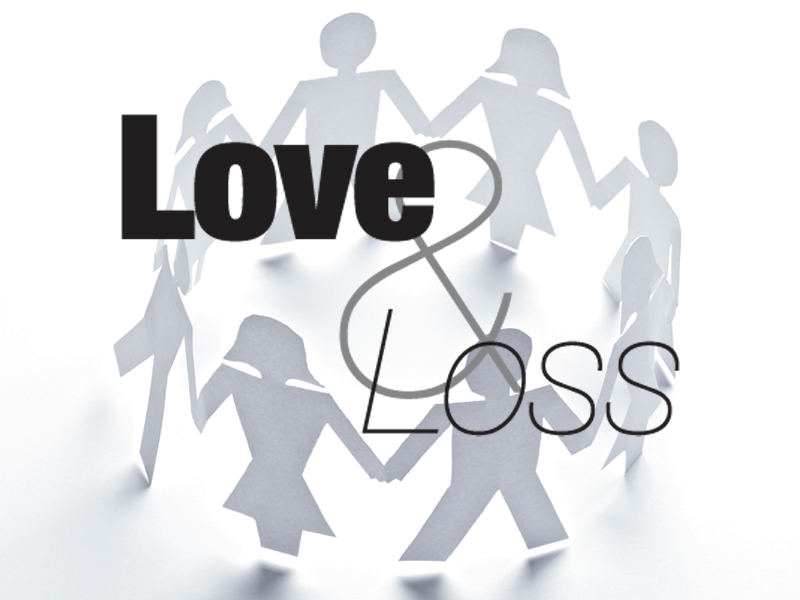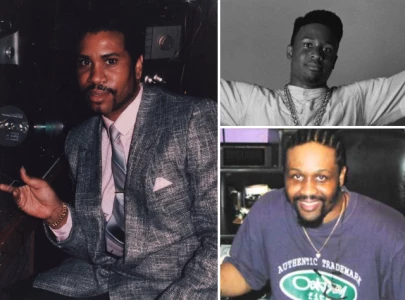
Parenting is a love story and like all great love stories, it is a story of loss.
If you are a mother, you are at least slightly familiar with the sensation of loss. At the very beginning, you lost your figure. Then maybe you lost your sleep, your career or your sense of self. If you are like me, you have lost your temper more often than you care to count. But most importantly, by falling in love with a little creature, you have lost your carefree nonchalance towards life and have been given in return, a strange and terrifying vulnerability which you will carry with you all the rest of your days.
A few dreadful days ago, one after another, three dear friends shared the stories of their loss and their pain with me. Over email, over coffee, over the phone, they opened their hearts and gave me a tiny glimpse into the grief contained within: the first, a mother to a one-year-old who died tragically, soon after her first birthday; the second, an expectant mother who had a miscarriage at over twenty weeks; the third, a woman who had been struggling with the demon of infertility for over seven years. Mothers, almost-mothers, not-quite-mothers, all aching under the burden of their destinies.
As I heard from each of my friends, their stories covered generously and bravely with layers of “It’s okay. Whatever God wills. I’m okay,” I wanted to crumble in to them, for them, but instead I had to stand just as they stood because I knew I was privy to something sacred at work in that bravado, whether false or genuine. I had to resort to words, clumsy and stiff, drawing from the same small box of words everyone uses at times. And when we parted, I experienced the helplessness of not having said enough, of not having done enough.
Knowing how to grieve with someone is a skill and a privilege. We mothers talk so much about how to do much less important things well, but so little about how to be there, be here, for other mothers. Do you know the statistics? One in every four pregnancies will result in miscarriage or stillbirth or the loss of a child. Let that sink in for a minute. This means that odds are very high that in our lifetimes either we will go through this grief ourselves or know someone who will. I know that I need to, we all need to, talk to mothers who have grieved and find out what helps and what hurts so that we can be better at being here. It is a sacred ability. We need to learn as much about what comforts others as possible and even though there is of course, no perfect step-by-step formula to being the ultimate comforter, there are ways to communicate your empathy, to remind them of god’s promises without making them feel like their loss is being diminished. Growing up requires our learning this.
I’ve heard other people say, “My heart aches for you.” But I think until very recently, I didn’t fully understand what they meant. But when I heard about my friend who lost her one-year-old, I understood. And when I heard about my friend who is reconciling herself to the idea that she may never become a mother, I understood. Sometimes a woman’s agony is so large, it needs other women to carry it. It needs the language of tears, touch, something that says, “You have too much ache. Let me take some. I feel it too. You are not alone.”

We spend a lot of time focussing on our achievements, and those of our children. Who will they become? How can we provide the best possible future for them? Of course, this is part of the task of parenting; to shepherd a child into the world and prepare them to prosper within it. But mothers all over the world will lose their unborn children, and some of us will watch our children die in front of us and some of us would give anything just to have a child to lose.
Parenting is naturally forward-looking. It presumes at its core, a future where the child outlives the parent and ideally becomes successful, perhaps even achieves something spectacular. “Mera beta doctor banay ga!” So, for these women, my friends, all the women ever who have lost children, death is not only about the absence of a beautiful present, losing someone’s voice and touch and presence. It’s the loss of a future they mourn, what seemed so sure, all those memories that haven’t happened yet snatched away from them.
Once upon a foolish time, I used to get teary looking at Beta and Beti’s baby pictures. Something in those images of fat little legs and innocent toothy grins did a painful, clenching thing to my heart and left me with a choking sense of loss. The passage of time still gives me pangs, but maybe being too busy dealing with my current challenges, or maybe hearing about my friends’ tragedies or maybe simply growing up, is forcing me to understand a profound truth: Motherhood is a love story, and like all great love stories, it is a story of loss. Perhaps, all we will lose is chubby thighs and baby teeth and lisping, toddler words. But, perhaps, we will be tested far more greatly. We will be asked to embrace wisdom and gain a profound understanding of the human experience through hard-won lessons, to emerge as sturdier versions of ourselves forged through grief and helplessness, ingrained with the truth of how to be not just good parents but how to be good human beings.
All good times come to an end. But so do all bad times. “This too shall pass” applies universally. Learning how to live with loss and death is also about learning how to live with love and life. At all times, be here.
Hiba Masood is a stay-at-home mother to four-year-old Beta and one-year-old Beti. Writing about parenting affords her time away from actually doing it
Connect with Drama Mama online at
www.facebook.com/etdramamama for more thoughts on the crazy ride of motherhood
Published in The Express Tribune, Ms T, March 24th, 2013.
Like MsT on Facebook for your dose of girl talk.
COMMENTS (5)
Comments are moderated and generally will be posted if they are on-topic and not abusive.
For more information, please see our Comments FAQ

















Beautifully written....
Beautifully written and rightly understood!
How is it that I saw this after 4 days............I am getting old. This was serious stuff you wrote about, life, death, parting, love, sorrow and a host of related emotions are handled in my view, by individuals each according to their own abilities and circumstances. Your advice given is definitely very mature. At times like these, women's senses and emotions are more intense than men. I've tried to think of an honest simple answer as to why, apart from the obvious and the result is not very flattering for us men..................do write on this aspect as well and prove me wrong.
This was so depressing though well written.
Good One...!!!